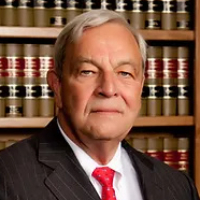Desha Juvenile Law Lawyer, Arkansas
Not enough matches for Desha Juvenile Law lawyer.
Below are all Desha lawyers.
H. David Blair
✓ VERIFIEDAccident & Injury
H. David Blair is a practicing attorney in Arkansas specializing in accident and injury cases. David Blair completed legal studies at University of A... (more)
Barrett Moore
Accident & Injury, Divorce & Family Law, Criminal, Business, US Courts
Status: In Good Standing
Robert D. Stroud
Banking & Finance, Business, Personal Injury, Medical Malpractice
Status: In Good Standing
Tom Thompson
Admiralty & Maritime, Insurance, Workers' Compensation, Family Law
Status: In Good Standing
Randall W. Henley
Real Estate, Child Custody, Divorce & Family Law, Criminal
Status: In Good Standing Licensed: 42 Years


